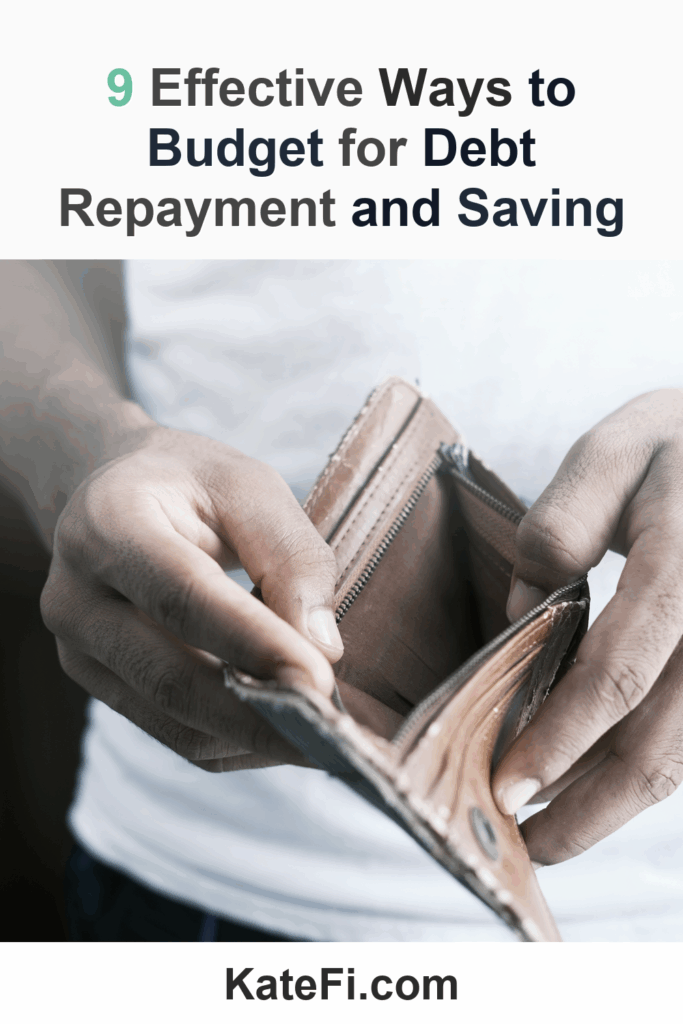How to Boost Your Credit Score After a Debt Settlement Agreement
If you’ve recently entered into a debt settlement agreement, congratulations! You’ve taken an important step towards regaining control of your finances. While settling debts can alleviate immediate financial pressure, it’s crucial to understand how this decision impacts your credit score in both the short-term and long-term. In this article, we will outline actionable strategies to help you boost your credit score after a debt settlement. Let’s dive in!
Love our content? Show your support by following us — pretty please!🥺
FOLLOW ON PINTEREST
Hi! I’m Kate, the face behind KateFi.com—a blog all about making life easier and more affordable.
Understanding Credit Score Impacts: Short-term vs. Long-term
Lower Your Unsecured Debt
If you have $5,000+ in credit card or personal loan debt, a free consult can review options like settlement or hardship plans.
- One-on-one call to review your debts and goals
- See potential monthly payment reductions
- No obligation to enroll
Not available in IL, KS, OR, TN, UT, WV.
Before we get into the specifics of improving your credit score, it’s important to grasp the immediate and lasting effects of debt settlement. In the short term, your credit score will likely take a hit because settling a debt often involves paying less than the full amount owed. This could be seen as a sign of financial distress by lenders.
However, in the long run, settling your debts can provide a pathway to better financial health, allowing you to build a stronger credit profile over time. Your ability to manage new credit responsibly will ultimately reflect positively in your credit score.
To better understand the dynamics, consider this comparison table:
| Aspect | Short-Term Impact | Long-Term Impact |
|---|---|---|
| Credit Score | Decrease | Potential Increase |
| Credit Utilization Ratio | May improve | Needs to be monitored |
| Payment History | Negative Mark | Positive Payment History |
| Access to New Credit | Difficult | Easier with improved score |
With that foundation set, let’s explore nine practical steps you can take to improve your credit score post-settlement.
1. Review Your Credit Report
Start by obtaining a free copy of your credit report. This will give you a comprehensive overview of your current credit standing, including the status of the debts you settled. Discrepancies can occur, so it’s essential to ensure that all settled accounts are marked correctly. You can get your free report at AnnualCreditReport.com.
2. Check for Errors
Understand pros/cons of settlement vs consolidation vs DMP for your exact mix of debts.
Not available in IL, KS, OR, TN, UT, WV.
After you review your credit report, scrutinize it for errors or inaccuracies. If you find any, dispute them with the credit reporting agency. Rectifying these errors can lead to a better credit score. It’s a task that might seem tedious, but even small mistakes can impact your credit profile.
3. Pay Down Existing Debts
If you have remaining debts, focus on paying them down. Aim to reduce your credit card balances, as lowering your credit utilization ratio can significantly impact your score. A good rule of thumb is to keep your credit utilization below 30%.
✅ See If You Qualify for Debt Relief
4. Establish a Positive Payment History
👉 Start Your Free Debt Relief Review
Not available in IL, KS, OR, TN, UT, WV.
Your payment history accounts for about 35% of your credit score. Make timely payments on all future debts and obligations. Set reminders or automate your payments to ensure you don’t miss any deadlines. Each on-time payment contributes to building a favorable credit history.
5. Consider Becoming an Authorized User
If you have a family member or trusted friend with a good credit history, consider asking to be added as an authorized user on their credit card. This can provide a quick boost to your credit score as their positive payment history will be reflected in your credit profile, enhancing your creditworthiness.
6. Diversify Your Credit Mix
Credit scoring models also consider the variety of credit accounts you hold. Consider adding a different type of credit to your mix—like an installment loan (car loan, personal loan, etc.)—as long as it fits your financial situation. However, always ensure you can manage this new debt responsibly.
7. Limit New Hard Inquiries
While it’s essential to keep your credit diverse, try to limit new credit inquiries. Each hard inquiry can slightly lower your score. When applying for new credit, only do so when necessary and be mindful of the timing.
8. Keep Old Accounts Open
Your credit history length contributes to your score, so don’t close old credit accounts, even if they’re not in use. Keeping them open shows a longer track record of responsible credit management, which can be beneficial in the eyes of lenders.
9. Utilize Credit-Building Tools
Consider utilizing tools like credit builder loans or secured credit cards designed specifically for rebuilding credit. These options can help you establish a positive credit history as long as you make your payments on time.
✅ See If You Qualify for Debt Relief
Gathering Documentation for a Faster Review
If you’re planning to work with a debt relief professional to explore your options, it’s crucial to gather all necessary documents to expedite the process. Here’s a practical checklist of items to prepare:
- Recent Credit Report: Highlight any discrepancies or accounts that have been settled.
- Pay Stubs and Income Statements: To establish your current financial situation.
- Debt Statements: Include amounts owed and the status of each account.
- Budget Overview: Document your monthly income and expenses to show your ability to manage future payments.
Being organized can significantly speed up the evaluation of your financial options and help you understand the best path forward.
The Path Forward
Improving your credit score after a debt settlement agreement is not only possible; it’s entirely within your reach. While it requires diligence, patience, and a strategic approach, the benefits of having a healthier credit score can lead to better financial opportunities, including lower interest rates and improved access to credit.
Don’t hesitate to explore your options further. Many people find great success through debt relief programs, which could provide additional guidance tailored to your situation.
✅ See If You Qualify for Debt Relief
As you work to rebuild your credit score, remember to stay committed to your financial goals. In time, the efforts you put in now will pay off.
Important: This content is for education only—not legal, tax, or financial advice. Results and eligible programs vary by situation and state. Fees apply if you enroll and complete a program. Debt relief can affect credit; missed payments may lead to collections/lawsuits. Not available in IL, KS, OR, TN, UT, WV.
By implementing these strategies, you can pave the way to a stronger financial future. Keep at it, and soon, you’ll be on the road to credit recovery.






















